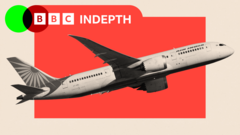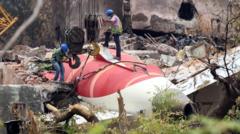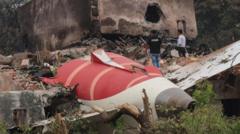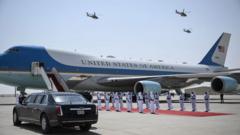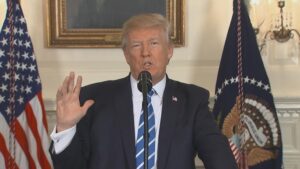As the U.S. government investigates imports of commercial aircraft and aviation parts, concerns grow regarding potential tariffs that could affect aerospace suppliers while aiming for national security.**
U.S. Launches Investigation into Imported Aviation Components Amid Tariff Concerns**

U.S. Launches Investigation into Imported Aviation Components Amid Tariff Concerns**
The Trump administration's new inquiry into imported aircraft and parts could pave the way for additional tariffs impacting the aerospace industry.**
The Trump administration has initiated an investigation concerning the import of commercial aircraft, jet engines, and associated parts that could culminate in the implementation of new tariffs. This action, confirmed by a federal notice released on May 1, falls under the Trade Expansion Act, granting the president the authority to impose tariffs to protect national security interests.
Commerce Secretary Howard Lutnick stated that this inquiry is part of broader efforts to assess whether existing domestic demand for these components can be met internally or if continued foreign reliance is necessary. This move follows previous tariffs imposed on materials like aluminum and steel, with similar investigations launched into sectors including semiconductors and pharmaceuticals.
The aerospace industry, which has sustained a notable trade surplus historically, is apprehensive that new tariffs could disrupt its supply chain. With exports projected to reach approximately $125 billion this year, it remains vital to the U.S. economy. Eric Fanning, president of the Aerospace Industries Association, emphasized that the industry’s contributions to employment and innovation signify success, while noting the importance of balancing domestic supply chain development with maintaining beneficial trade relationships.
Boeing, a major player in commercial aircraft manufacturing, expressed that earlier tariffs had a negligible direct impact on the company, although concerns were raised regarding their suppliers' financial strain. Boeing's CEO, Kelly Ortberg, noted the company incurs a 10% tariff on components sourced from countries like Italy and Japan, yet expects to adjust prices accordingly when selling completed aircraft.
Conversely, companies such as RTX and GE Aerospace have reported significant anticipated costs due to tariffs, estimating financial hits of $850 million and $500 million respectively this year.
Historically, the aviation sector has seen various governments implement protectionist policies through tariffs and subsidies, particularly amid prolonged disputes over unfair advantages bestowed upon companies like Boeing and Airbus. Having settled previous disputes with the EU in 2021, the focus has shifted towards collaborative efforts to counteract competing influences, particularly from China.
As the investigation progresses, industry leaders await clarity on future policies that could redefine the landscape of U.S. aviation and international trade relations.


